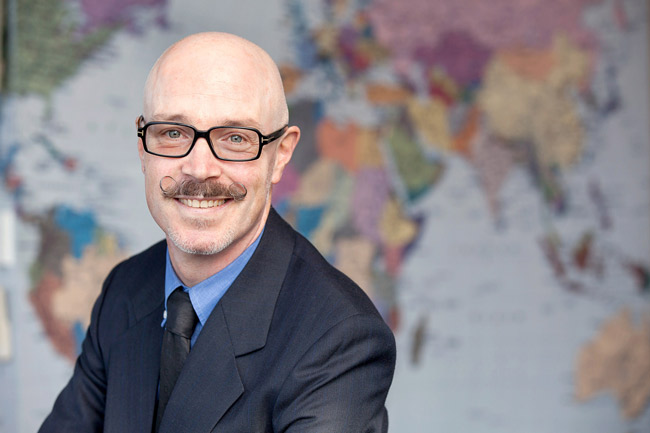
New appointment ... Professor Robin Gauld.
The University of Otago has appointed Professor Robin Gauld as the next Dean of the University's Otago Business School.
A highly respected academic, Professor Gauld is currently head of the University's largest and most diverse department, the Department of Preventive and Social Medicine. He is also Founding Director of the University's Centre for Health Systems, which spans the Business School and the Dunedin School of Medicine.
He will take over the helm of the School from its retiring Dean Professor George Benwell on 1 December.
Announcing the appointment, which was made after an international search, Vice-Chancellor Professor Harlene Hayne says that as a highly accomplished researcher, teacher and administrator, Professor Gauld is an excellent choice to lead Otago Business School.
"Professor Gauld is very familiar with this integral part of the University."
“Professor Gauld is very familiar with this integral part of the University. He was on the Commerce Divisional Board for seven years and has an ongoing relationship with various departments in the School, including co-supervising PhD students, collaborating on research projects and teaching in Executive Education programmes and Economics papers.”
“Like me, Professor Gauld has high aspirations for the Business School and sees new and exciting opportunities for this very important part of University.”
Professor Gauld is a social scientist whose degrees are in public policy, administration and management. He is considered to be New Zealand's most authoritative analyst of its health care system and co-wrote the influential book, Dangerous Enthusiasms, on public sector IT disasters, which was selected as core text for a Harvard Kennedy School of Government Course in “Knowledge Management”.
He completed his undergraduate and Master's degrees at Victoria University of Wellington and his PhD at the University of Hong Kong. He is in his 20th year of working at the University of Otago and has published over 115 peer-reviewed articles, 37 book chapters, and 11 books.
Professor Gauld's research interests include health policy and management, health services, health systems and e-Government. He is a Member of the British Academy of Management and of the International Public Management Network.
Much of his work — both research and teaching — draws upon concepts taught in business schools in areas such as management, human resources, organisational analysis and design, information science, and leadership.
"I plan to support and grow the research focus in the School, which is really at the heart of a leading business school."
As part of his University service to the community, Professor Gauld is Independent Chair of Alliance South, a governance body that brings together clinical leaders and managers from the Southern DHB and primary care settings to focus on 'whole of system', integrated approaches to health system and patient care improvement.
Professor Gauld says he is excited to be taking up the Dean's role.
“I'm also greatly looking forward to working with colleagues in the School to develop its future strategy, including defining its strategic point of difference and brand. I plan to support and grow the research focus in the School, which is really at the heart of a leading business school.”
He says the Otago Business School has the potential to lead in areas such as Māori business as well as other fields. “I'm keen to engage staff in what we focus on as a school, but also to support their own research and teaching aspirations.”
Professor Gauld says he is looking forward to engaging with the business community and, especially, learning what they would like to see the School focusing on. “I see very exciting opportunities for closer engagement with business and with our students, who are at the centre of all we do.”
“I also see huge opportunities to work more closely with the other three Academic Divisions at Otago. In my view, Commerce is the 'wings' of the University and relevant to much of the research and teaching in other Divisions.”